
“I Saw the Devil” Korean Theatrical Poster
Director: Kim Ji-woon
Writer: Park Hoon-jung
Cast: Lee Byung-Hun, Choi Min-Sik, Jeon Guk-Hwan, Cheon Ho-Jin, Oh San-Ha, Kim Yun-Seo, Choi Mu-Seong, Kim In-Seo, Jo Deok-Je, Han Cheol-Woo
Running Time: 114 min.
By JJ Hatfield
I Saw The Devil is a stunning masterpiece of the macabre. A terrifying tale of horrific deeds done for sickening psychotic pleasures and unimaginable acts carried out for a promised justice. In the dark of night on a lonely snowy road a hideous crime is committed. This gruesome barbarous undertaking sets the wheel in motion for a spellbinding journey into the depths of blood drenched terror in nightmare proportions.
When his fiancée Ju-yeon is viciously slaughtered, Kim Soo-hyeon sets out to find her murderer and make him pay, and pay dearly. With the help of his fiancée’s father, retired chief of police Jang, Soo-hyeon quickly discovers the primary suspects in Ju-yeon’s bloody and vicious murder and rules them out in his own way one by one. It isn’t long before he has found the subject of his search. Indeed Soo-hyeon finds the savage serial killer Jang Kyung-chul rather quickly, tracking him down and confronting him but he doesn’t beat him to near death and turn him into the authorities. Soo-hyeon made an impassioned promise to his beloved Ju-yeon and he intends to keep that promise no matter where it may lead.
Choi Min-sik, known for Oldboy, has always proven himself accomplished as any character but here he goes well beyond his previous success to his finest role to date. Choi turns in a positively brilliant performance. He takes on the task of being the cold-blooded butcher Kyung-chul and does so to sadistic maniacal perfection. When he is on screen you can look nowhere else, even though you may try to look away. Kyung-chul is the embodiment of absolute evil. He is not a misunderstood character and there is no possibility of redemption. There is nothing that could conceivably explain the cruelty and mental and physical atrocities he inflicts on his victims and thereby those that love them. Though Kyung-chul is thoroughly malevolent that in no way translates into him being dimwitted. A suspect in numerous killings of girls and young women for years he has managed to evade capture. Whether this is due to his superb evasion techniques or deficient police abilities isn’t quite clear, although it does seem mostly the latter.
Lee Byung-hun, A Bittersweet Life, The Good the Bad the Weird, leaves absolutely no doubt that he has become a truly excellent actor capable of an astonishing artistic achievement. He too turns in the performance of his career. With I Saw The Devil he proves himself worthy of outstanding status. Lee makes a convincing loving and compassionate man whose vow of revenge twists his very soul. He is very believable as the character Soo-hyeon a highly skilled secret agent with the National Intelligence Service. Soo-hyeon’s training allows him to more effectively contend with the ruthless Kyung-chul than the average person at least on the physical level. His unfathomable pain drives him onward never allowing him to rest in his quest to fulfill his promise, to extract his revenge.
Kim Jee-woon is the mastermind of the movie. Previous works include A Tale of Two Sisters, A Bittersweet Life, and The Good the Bad the Weird. Kim is a fantastic director and with I Saw the Devil he excels. He utilizes the cinematography of Lee Mogae to shape every slice of film in excruciating and unflinching detail. The camera never shies away from the bloody terrors instead recording what feels like intensely private horror. These are things no one would ever see unless doing the blood soaked grisly acts themselves. A number of shots involve the element of snow. Pure unspoiled innocence provides the backdrop for droplets to pools of blood, the jet black hair of a victim, the palette for prey to fall to the merciless hunter. It may sound odd but this is a beautiful film. Scenes of the snow are vivid and unblemished. Every shot is clear and distinct, perfectly framed lighted and balanced.
There are numerous exceptional scenes that combine cinematography, choreography and action. An abandoned greenhouse provides a visually striking environment for Soo-hyeon and Kyung-chul to come together, two men pitted against each other in a duel. A taxi is the stage for an amazing action sequence. The choreography is brilliant, no less the shooting. It is a brutal bloody frantic surreal piece of film. Every image is striking, every scene splendidly crafted.
Anyone who thinks this is just a Korean version of an American slasher movie is a fool. With so many facets this gem must be seen more than once. I Saw The Devil is a multilayered impeccable work that succeeds because every single aspect is flawlessly done. The fact is everything is executed to perfection. Hollywood can never make a film like this. I Saw The Devil is one damn fine film – one of the best you will ever see and you will never forget.
I Saw The Devil receives my highest recommendation and the best score possible here at cityonfire.com.
JJ Hatfield’s Rating: 10/10
By HKFanatic
From the looks of it, “I Saw the Devil” is drawing stronger reactions online – both positive and negative – than your average Korean revenge film. I think it’s largely because this is one of the few revenge movies I can think of that makes its “hero” complicit in the violence and pain that is wrought.
On the surface we have a slick and stylish film with a very capable, almost Jason Bourne-like protagonist, who is on the hunt for the serial killer who took everything from him. During the runtime we get plenty of bloody, bloody murders; some backwoods cannibals that will turn your stomach; the constant threat of rape; and enough tendon slicing and torture for several films. Somewhere along the way our protagonist becomes so mired in the bloodshed and his lust for revenge that he loses sight of the innocent who are hurt in the process. There’s no one to root for here; just black painted on black.
“I Saw the Devil” may be the latest in a long-running stream of South Korean revenge films, but director Ji-woon Kim (“The Good, The Bad, The Weird” and “A Bittersweet Life”) is just as happy to subvert the genre as he is to embody it. He toys with the notion of giving the viewer the catharsis we crave from a revenge flick – a wrong has been committed and someone needs to make it right – but by the end of the film, the audience has been tossed into an abyss of brutality where there is no right, no wrong, no hero, no villain, just a concrete floor splattered with blood and entrails that the credits will slowly sweep away like a janitor clearing a school hallway.
Arthouse critics, action purists, revenge movie fans – all should find something to enjoy in “I Saw the Devil,” but then again it’s not exactly a movie you “enjoy” in the traditional sense. The film glides through the night like the windowless van of a predator, offering you a ride after the buses have stopped running. You’ll hop in, a little leery but thankful for the warmth. And just when you least expect it, the movie bashes you in the head with a lead pipe until you slump over, blood streaming from what used to be your skull. Are you ready?
HKFanatic’s Rating: 8.5/10
By Mighty Peking Man
After Soo-hyun’s (Lee Byung-hun) girlfriend is barbarically murdered, he seeks revenge against the psychopath (Choi Min-sik) held responsible…
In a country whose movies consist mostly of remakes (“The Karate Kid”), reboots (“Conan The Barbarian”), comic books (“Green Lantern”), teeny bopper novelizations (“Twilight”) and filmmakers (Michael Bay, James Cameron) who piss and shit on the foolish masses; it’s good to know that there’s an alternative option out there for top quality filmmaking that’s fresh and original.
It’s no wonder I got into foreign cinema to begin, which remains one of the best choices I’ve ever made in regards to entertaining this little brain of mine. I’m not saying all of Hollywood sucks, I’m saying that most of it does. Let’s put it this way: it has been years since I have been truly in awe after watching a Hollywood movie (get the hell out of here with that “Inception” shit!).
Kim Ji-woon’s “I Saw the Devil” is as good as it gets when it comes to a single motion picture full of revenge, violence, suspense, gore and action; with that statement, it almost sounds like I’m downplaying it as some kind of senseless shock-value flick; the fact is, it’s an all-round solid movie that’s filled with great characters, a simple plot and a director/writer/cast/cinematographer/action choreographer who really knows what the fuck they’re doing.
I have thoroughly enjoyed every Kim Ji-woon title I have seen (I have yet to see 2000’s “Coming Out”). However, I was a little worried after watching “The Good, the Bad, the Weird” (2008); don’t get me wrong, it’s an awesome movie, but there was a part of me that sensed Kim Ji-woon might have been headed more towards the big budget Hollywood side of things, and away from the more low key cult favorites like “A Bittersweet Life” (2005) and “Foul King” (2000)…
With “I Saw the Devil,” Kim Ji-woon takes a step backwards from the mainstream light, and pulls out a gutsy – metaphorically and literally speaking – thriller that I’ll never forget and continue to bring up anytime the subject of ‘great movies’ is discussed.
A definite must see!
Mighty Peking Man’s Rating: 10/10

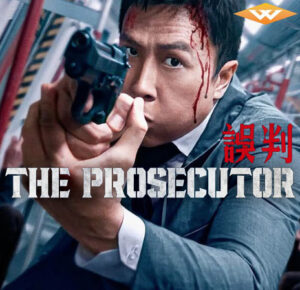
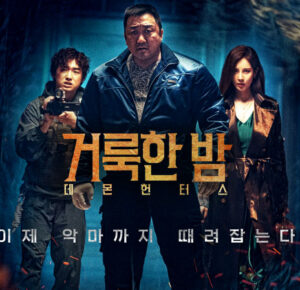
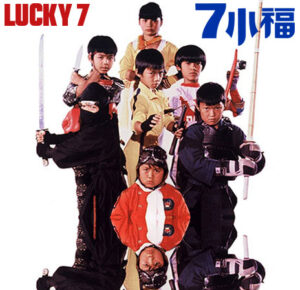
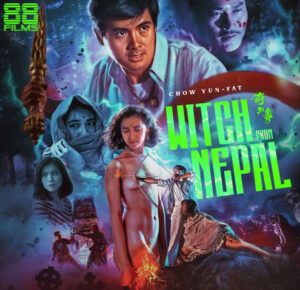











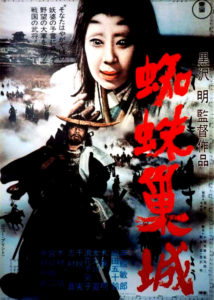





Be the 1st to Comment